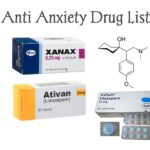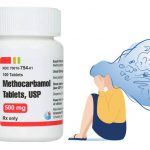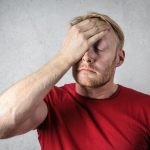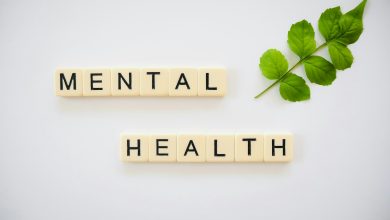How To Ask Your Doctor For Anxiety Medication

What is an anxiety disorder?
An anxiety disorder is a type of mental health condition. If you have an anxiety disorder, you may respond to certain things and situations with fear and dread. You may also experience physical signs of anxiety, such as a pounding heart and sweating.
Anxiety statistics worldwide show that anxiety disorders are common across the globe. According to the World Health Organization, 3.6 percent or about 264 million individuals worldwide have an anxiety disorder. Additionally, 4.6 percent of females and 2.6 percent of males globally are affected by anxiety.
It’s normal to have some anxiety. You may feel anxious or nervous if you have to tackle a problem at work, go to an interview, take a test, or make an important decision. And anxiety can even be beneficial. For example, anxiety helps us notice dangerous situations and focuses our attention, so we stay safe.
But an anxiety disorder goes beyond the regular nervousness and slight fear you may feel from time to time. An anxiety disorder happens when:
• Anxiety interferes with your ability to function.
• You often overreact when something triggers your emotions.
• You can’t control your responses to situations.
Anxiety disorders can make it difficult to get through the day. Fortunately, there are several effective treatments for anxiety disorders. Anxiety disorders can be treated with medication, psychotherapy, or a combination of the two. Some people who have a mild anxiety disorder, or a fear of something they can easily avoid, decide to live with the condition and do not seek treatment.
What medication is for anxiety?
Medications used to treat anxiety are known as anxiolytics (anti-anxiety or anti-panic drugs). Anxiolytics work by targeting key chemical messengers in the brain. This is thought to help decrease abnormal excitability. Some of the more frequently prescribed anxiolytics are benzodiazepines.
Neurons in the brain exhibit highly specific, high-affinity binding sites that can selectively recognize, or bind, the benzodiazepine compounds. The cellular and subcellular locations of these sites are near ion channels in the membrane that can admit chloride ions into the cell and also near sites where a neurotransmitter known as gamma-aminobutyric acid (GABA) acts.
GABA is considered an inhibitory neurotransmitter because it blocks, or inhibits, certain brain signals and decreases activity in your nervous system. When GABA attaches to a protein in your brain known as a GABA receptor, it produces a calming effect. This can help with feelings of anxiety, stress, and fear.
GABA exerts inhibitory actions on certain neurons and thereby reduces the transmission of nerve impulses. Benzodiazepines in general enhance the effects of GABA. Some of the most widely prescribed drugs for the treatment of anxiety and panic disorder include:
- alprazolam (Xanax)
- chlordiazepoxide (Librium)
- clonazepam (Klonopin)
- diazepam (Valium)
- lorazepam (Ativan)
How to ask your doctor for anxiety medication?
If you are seeing a doctor for the purpose of getting an antianxiety medication rather than to be treated for anxiety, most care providers will see right through this.
Generally, it’s not up to you to determine the best anxiolytic for you and if you try to steer a doctor toward a specific drug, you’ll look like a drug seeker. Treating anxiety isn’t a matter of “popping a pill” and that’s it, it requires cognitive and behavioral therapy.
You can’t convince a good physician you need anything with words. You’ll have to exhibit a long list of symptoms and you’ll have to be a very good actor to convince them because they can sniff it out a mile away. If you do have a psychological problem, discuss this with your doctor and go through the process of therapy and medications as they deem fit. They most likely can find you something or some combination of therapies that will ease your anxiety or other issue and it doesn’t have abuse potential.
If you are looking to abuse this medication, know it’s a hard one to kick. It’s not worth it. If you feel like you need to pop pills to feel better about something, then seek help from a doctor and treatment for your addiction





